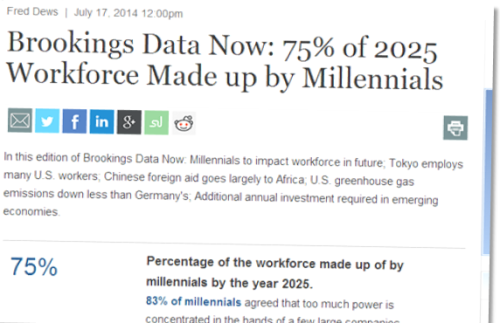As June comes to an end, a review of content produced by Brookings experts shows another month of analysis and commentary on the widest range of issues possible. While Brexit dominated the headlines at month’s end, there was much more on our scholars’ plates (but we’ll still lead off with Brexit).
We learned a lot about the political and economic implications of Brexit
Since the June 24 vote in the United Kingdom, in which the leave the European Union side prevailed, Brookings scholars have been offering their analysis and commentary across a range of political, economic, and social implications of the Brexit outcome.
The white working class is fearful on immigration
William Galston comments on recent survey data from the Public Religion Research Institute and Brookings that show stark differences in how the white working class sees issues such as immigration and trade. “On every front—economic, cultural, personal security,” Galston notes, “they feel threatened and beleaguered. They seek protection against all the forces they perceive as hostile to their cherished way of life—foreign people, foreign goods, foreign ideas, aided and abetted by a government they no longer believe cares about them.”
Racial diversity is the most defining characteristics of Millennials
William Frey explores new Census data, explaining that “the millennial generation is ushering in the nation’s broader racial diversity.” While 75 percent of those aged 55 and older are white, just under 56 percent of Millennials (aged 18-34) are white, and 51.5 percent of under 18-year-olds are white.
The Syrian refugee crisis is manageable … if it’s managed
One percent of the world’s refugees will be resettled in developed countries, Bobby McKenzie says in a recent podcast, and so “we need to be thinking more about how do we provide support to refugees living in front line states [ensuring] that refugees have access to rights … labor … education … and public goods …” The “only way to do that if there is real responsibility sharing.”
Only 15 percent of the nation’s 14.5 million infrastructure jobs are in building roads
Joseph Kane and Adie Tomer offer a breakdown of infrastructure employment in the U.S., finding that the majority of jobs—nearly 78 percent—“tend to focus on operating different physical assets” such as bus drivers and cargo agents, who, they add, “often earn more competitive wages compared to all other workers nationally.”
The Volkswagen settlement could help us get off fossil fuels
Timmons Roberts—a lifelong VW driver—reflects on the recent multi-billion dollar settlement that Volkswagen agreed to make, the largest in U.S. history. Noting that the car maker intends to shift its business model from diesel to electric, Roberts writes that “my first impression of what VW did this week was of a fair deal that was not just lining my pocket. It was helping us get off fossil fuels as a society and benefiting human health and the environment in a substantial way.”
35 percent of those living below poverty in the U.S. are children
New research from the Hamilton Project at Brookings shows that more than a third of Americans living in poverty are children—15.5 million of them. The data show other characteristics of those living in poverty, including the fact that a quarter of them are in the labor force.
Japan offers men 52 weeks of paid parental leave; the U.S? Zero
“Feminism needs fathers,” Richard Reeves argues, writing that “Unless and until men and women share the responsibilities of parenting equally, gender parity in the labor market will remain out of reach.” One important step, he says, is “the provision of paternity leave, or at least forms of parental leave that can be taken up by fathers as well as mothers.”
The U.S. Senate’s days in session and conference reports with the House declined from 2007 to 2014
Molly Reynolds explores data from the Democracy Dashboard that focus on institutional functioning and capacity. She notes that “While these indicators paint the Senate in a less-than-positive light, it is important to note that, during the current Congress, the chamber, working with the House, has managed to make progress on a number of important issues …”
Ghana’s economy has been one of the fastest growing in the world
Ghana’s growth rate peaked in 2011 at 15 percent, and per capita income is rising. But Ernest Aryeetey and William Baah-Boaten note a concern: “the ability of the country to sustain this growth momentum given the level and quality of education and skills, and, more importantly, the failure of this strong growth performance to be translated into the creation of productive and decent jobs, improved incomes and livelihoods.”
The Brookings Institution is committed to quality, independence, and impact.
We are supported by a diverse array of funders. In line with our values and policies, each Brookings publication represents the sole views of its author(s).




Commentary
10 things we learned at Brookings in June
June 30, 2016